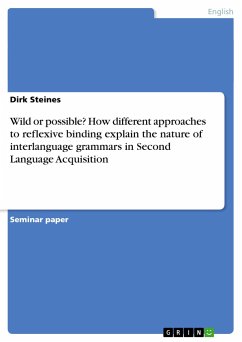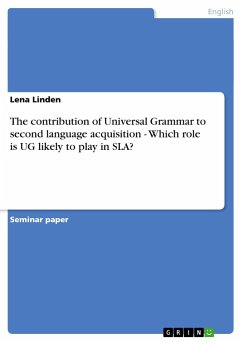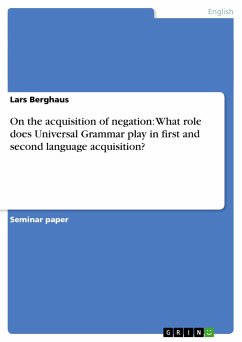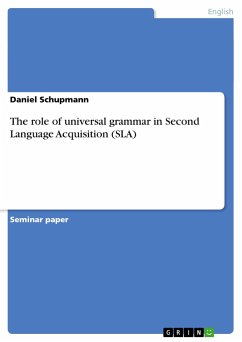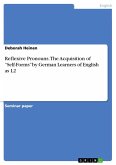Seminar paper from the year 2006 in the subject English Language and Literature Studies - Linguistics, grade: 1,3, University of Cologne (Englisches Seminar), course: Second Language Acquisition and Universal Grammar, language: English, abstract: Within the discourse of generative grammar it has been proposed that Universal Grammar (UG) can be seen as an innate structure that governs the course of learning a language. The domain of UG is often also referred to as the "principles and parameters framework". While principles can be seen as a set of rules (e.g. the linearity of language) that are applicable for all natural languages, certain parameters make up and have to be set according to different languages. As there is not much disagreement on the role of UG for the acquisition of a first language (L1), many researchers have discussed the question if and how UG constrains second language acquisition (L2A).A large amount of research has been conducted within the field of the acquisition of reflexives in L2. Earlier approaches explained the acquisition of reflexives in L2A as a resetting of the Governing Category Parameter (GCP). Other approaches accounted the cross-linguistic variation in interpreting domain and orientation of anaphors to different categories of anaphors, namely X0 or head reflexives and XP or phrasal reflexives. It was then hypothesized that interpretation of these reflexives in L2A can either be the consequence of movement in Logical Form or a result of parameter settings regarding the agreement (AGR) parameter resulting in a relativized SUBJECT.The aim of this paper is to give a short overview of the above mentioned approaches on the domain of reflexivity acquisition by presenting one study for each approach. The results of the different studies will be discussed with emphasis to the question to what extent they show evidence for the non-/availability of UG in L2A. Based on this, a suggestion is stated, that the relativized SUBJECT approach is most sufficient to explain UG-availability in terms of the Full Transfer/Full Access Hypothesis.

